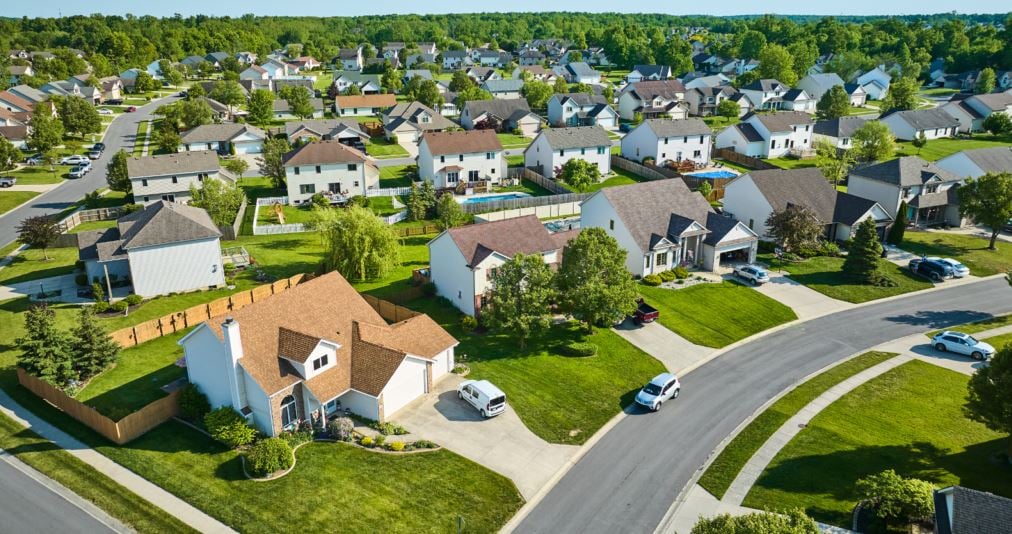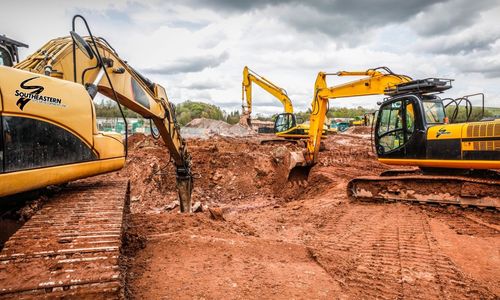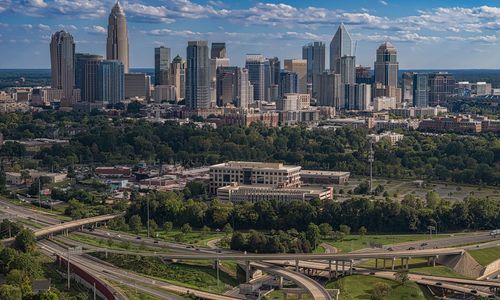By Maureen Mahood, Broker-Owner, SellYourHomeCharlotte.com
When it comes to housing reform, I believe we need solutions that protect neighborhoods and truly address affordability. Unfortunately, North Carolina’s Senate Bill 205 misses the mark.
SB 205 is being sold as a way to “fix” our housing shortage by cutting red tape for developers. But the truth is, this bill doesn’t help families looking for affordable homes. It helps corporations and builders push through projects with fewer checks and balances.
For homeowners in Charlotte and across the state, that’s bad news.
What SB 205 Actually Does
- Strips local control – Cities and counties lose the ability to manage zoning in ways that protect single-family neighborhoods. Raleigh is now telling Charlotte (and every other city) how to handle land use.
- Fast-tracks developer approvals – If local governments don’t review applications within strict deadlines, projects get automatically approved.
- Changes density rules – Developers can pack more units into a lot, and cities can’t stop them based on lot size alone.
- Voids local ordinances – Any zoning rule passed after October 1, 2025, that conflicts with SB 205 is unenforceable.
What We’re Already Seeing in Charlotte
Charlotte homeowners don’t have to imagine what this looks like — it’s already happening:
- Duplexes functioning as mini-apartment complexes. Builders are putting up multiple attached units on single-family lots, not to sell to families, but to rent out. These aren’t traditional duplexes — they’re small rental complexes slipped into neighborhoods where apartments were never meant to go.
- Neighborhoods disrupted. Streets designed for single-family homes are now filling up with rentals, bringing more cars, more traffic, and more density than the infrastructure was built for.
- Affordability not addressed. These units don’t provide affordable ownership opportunities. They’re designed to feed the rental market — further concentrating property ownership into the hands of corporations, not families.
This is exactly the kind of unchecked development SB 205 will accelerate.
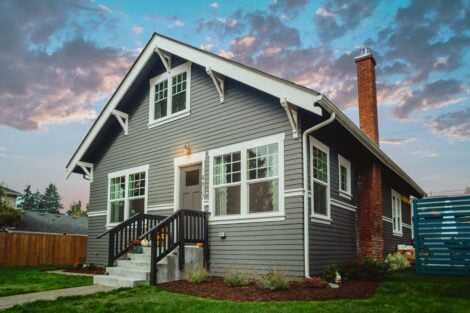
Our Rights as Homeowners
Homeowners have the right to expect stability in the neighborhoods they’ve invested in. You chose your home and your area with certain expectations — single-family character, green space, manageable traffic.
SB 205 undermines that by:
- Silencing local voices when zoning is challenged.
- Reducing the ability of cities to protect residential areas.
- Allowing developers to reshape communities with little regard for existing homeowners.
Property rights shouldn’t just apply to builders. Homeowners deserve protection, too.
Where This Will Hit the Hardest
SB 205 won’t play out evenly across Charlotte. The neighborhoods most at risk are:
- East Charlotte – Larger lots, fewer HOAs, and older single-family homes mean developers see opportunity to pack in duplexes or small rental complexes.
- West Charlotte – Already experiencing rapid redevelopment pressure, these neighborhoods could be transformed quickly under weaker zoning protections.
- North Charlotte – With bigger parcels of land, fewer neighborhood restrictions, and lower costs, this area becomes a prime target for higher-density rentals.
The reality is that areas without HOAs or strict covenants will feel it first and worst. These are exactly the communities that SB 205 makes most vulnerable.
The Bigger Picture for Charlotte
Charlotte is already facing an affordability crisis. Rents are climbing, investors are scooping up single-family homes, and first-time buyers are being priced out. Instead of addressing those issues head-on — by supporting buyers, preserving existing homes, or incentivizing ownership — SB 205 gives developers free rein.
And let’s be clear: land is scarce. We can’t create more of it. Once we pave over green spaces, they’re gone.
That has real consequences:
- Loss of green space means fewer trees, fewer parks, and fewer places for kids and families to enjoy outdoors.
- Loss of permeable surfaces makes flooding worse, increases stormwater runoff, and strains our infrastructure. Charlotte has already seen the impact of unchecked development on flooding in older neighborhoods. SB 205 will only accelerate that.
Good planning balances growth with green space, stormwater management, and long-term livability. SB 205 ignores those tradeoffs.
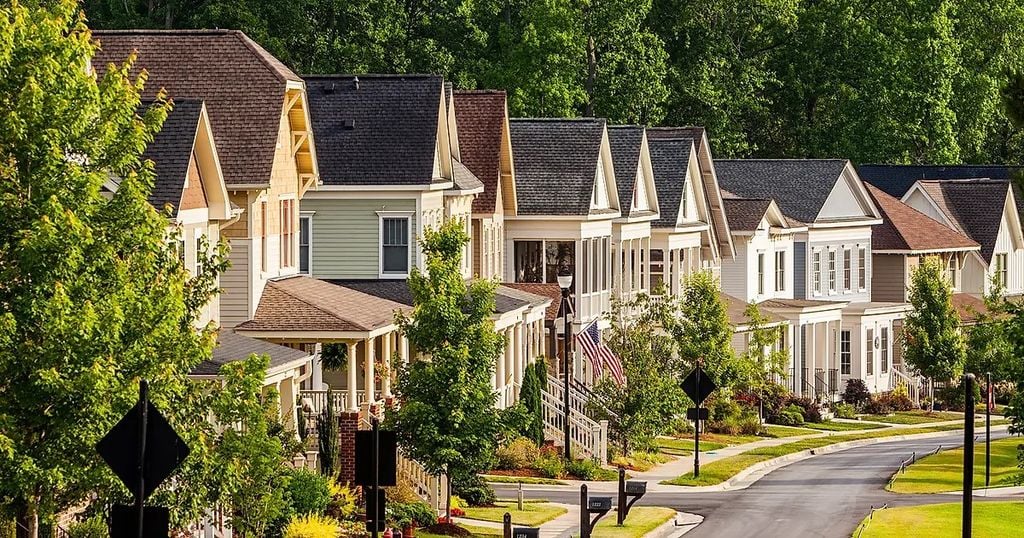
Where SB 205 Stands Now
- The Senate already passed the bill on April 8, 2025.
- In the House, a committee substitute was adopted on June 11, 2025, and it was referred to the powerful House Rules, Calendar, and Operations Committee.
- As of today, no floor vote has been scheduled. The bill was even pulled from a committee agenda at the last minute this summer, showing there’s pushback and debate happening.
This means there’s still time for homeowners to make their voices heard.
FAQs About SB 205
What is SB 205?
It’s a state bill that changes how zoning and development rules work across North Carolina. It focuses on limiting local government power and speeding up the approval process for developers.
Who benefits the most from SB 205?
Large developers, corporate investors, and builders. They gain faster approvals, higher density allowances, and stronger protections for their projects.
Does SB 205 help lower home prices?
No. Most of the housing created will be rental units, not affordable homes for purchase. It does little to increase true homeownership opportunities.
How does SB 205 affect single-family homeowners?
It weakens protections for single-family neighborhoods. Developers could introduce higher-density projects nearby, changing the look and feel of established communities.
Can cities like Charlotte stop unwanted development under SB 205?
Not easily. Many local tools and ordinances are void if they conflict with SB 205. Once this becomes law, Raleigh decides how much control cities really have.
Will this reduce red tape for families trying to build or renovate their own homes?
No. The bill is aimed at large-scale developers, not individual homeowners.
Does SB 205 directly increase affordable housing options?
No. It doesn’t provide funding, incentives, or programs for affordable homeownership. It mostly increases rental supply — which doesn’t build long-term stability for families.
What about green space and flooding?
SB 205 doesn’t protect it. By encouraging denser development and limiting local oversight, it threatens Charlotte’s green spaces and reduces permeable surfaces — making flooding and runoff worse.
Where will SB 205 be felt the most?
Neighborhoods with no HOAs and larger lots, especially in East Charlotte, West Charlotte, and North Charlotte. These areas are the easiest targets for developers.
When does SB 205 take effect?
October 1, 2025. After that, conflicting local ordinances will be unenforceable.
What local rules could disappear under SB 205?
Plenty of Charlotte’s current zoning protections may conflict, such as:
- Minimum lot sizes (many neighborhoods require 7,500–10,000 sq. ft. per home — SB 205 bans this).
- Setback requirements tied to lot size, reducing buffers between houses.
- Conditional rezonings where cities require green space, buffers, or traffic studies.
- Overlay districts protecting neighborhood character or historic areas.
- Tree save and open space rules under Charlotte’s UDO.
- Floodplain and stormwater rules requiring extra permeable surfaces or retention ponds.
- Waiting periods (currently 6–12 months) before a denied rezoning can be refiled — SB 205 eliminates them.
In plain terms: any local rule that limits how many units per acre can be built — or slows a developer’s timeline — could be wiped out.
Final Thoughts
Nobody’s against growth. We all want more housing options. But growth has to be responsible, balanced, and community-driven. SB 205 is none of those things.
As homeowners, we should be cautious about laws that hand over more control to corporations while giving less say to the people who actually live in these neighborhoods.
And we should remember: once our land is gone, it’s gone. The green spaces, trees, and natural buffers that make North Carolina livable won’t come back.
SB 205 is a mistake — one that could reshape Charlotte and cities across North Carolina for decades to come.
What Homeowners Can Do Right Now
This bill is still in committee. That means your voice matters.
Find and contact your NC House representative here:
https://www.ncleg.gov/FindYourLegislators
Tell them:
- You oppose SB 205.
- You want protections for single-family homeowners and neighborhoods.
- You want real affordable housing solutions, not corporate giveaways.
The future of our neighborhoods depends on it.
Want to stay updated on Charlotte real estate, zoning changes, and housing trends? Sign up for my newsletter at SellYourHomeCharlotte.com.

